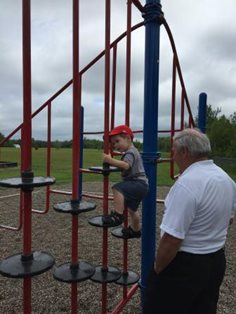
Concussions have been in the news a lot lately, particularly in professional sports such as football. However, concussions can happen to anyone, even if you don’t play contact sports. A fall from a bike or on a slippery surface could result in a serious head injury. It’s important to know what to do and what symptoms to watch out for.
The more serious signs of a head injury or potential concussion include loss of consciousness, memory loss, nausea, change in vision, dizziness. The person exhibiting these symptoms requires immediate medical attention, including calling 9-1-1 depending on the situation.
According to Don Marentette, it’s important to note that people with a head injury may not exhibit these signs right away. “When a person receives a blow to the head, they need to be removed from the scene of play and to err on the side of caution to avoid the risk of potential long term injury.”

When it comes to organized sports, Don Marentette suggests coaches and training staff should have those conversations and set the expectations for the team at the start of the season.
As for children, he explains that their skull becomes more rigid as they become older but the brain is continuing to develop into the teen years. Blood, swelling around the skull, or knocked out teeth from a facial injury are indications that the impact was strong enough to potentially cause an injury to the brain and that the person requires medical attention.
Recovery from concussions can be slow and vary from person to person. Don Marentette recommends following the advice of medical professional before resuming play or activities after a concussion diagnosis.
Related reading:

